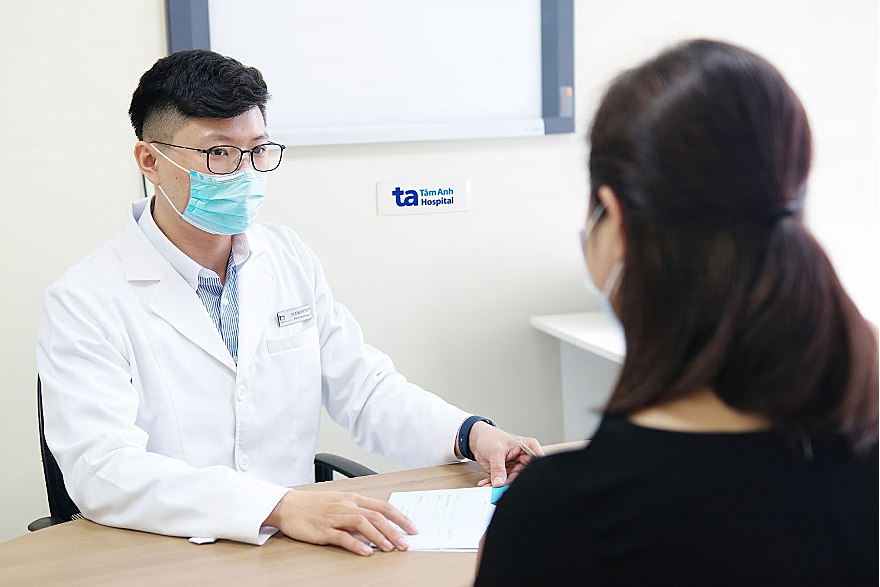Answer:
Colon cancer occurs when cells in the colon grow abnormally and become malignant. The exact cause of colon cancer is unknown, but people 50 and older are at higher risk. The disease is trending younger and can occur in people in their 40s.
Inflammatory bowel diseases like ulcerative colitis and Crohn's disease can increase the risk of colon cancer. If a parent, sibling, or child has had colon cancer, you are more likely to develop polyps or colon cancer. This may be due to inherited genes, shared exposure to environmental carcinogens, similar diets, or lifestyle factors.
 |
Doctor Si advises a patient. Illustrative photo: Tam Anh General Hospital |
Doctor Si advises a patient. Illustrative photo: Tam Anh General Hospital
Lack of exercise, being overweight or obese, smoking, and drinking alcohol increase the risk of developing colon cancer by more than 20% compared to non-smokers. Heavy drinkers are also more susceptible to colon polyps. The risk is even higher for those who both smoke and drink heavily.
Familial adenomatous polyposis (FAP) is a rare inherited disorder. People with FAP can develop hundreds or even thousands of polyps in the lining of the colon starting at a young age, often in their teens. If not diagnosed and treated, these polyps can develop into colon, small intestine, or duodenal cancer, often before the age of 40.
Gardner syndrome, a variant of FAP, causes tumors not only in the colon and small intestine but also benign tumors in other parts of the body, including the skin (sebaceous cysts, lipomas), bones, and abdomen, increasing cancer risk. People with MYH-associated polyposis often develop multiple adenomatous polyps and colorectal cancer at a young age. Lynch syndrome and Peutz-Jeghers syndrome (PJS) also increase the risk of colorectal cancer.
Since you have been diagnosed with adenomatous polyps, you should have regular check-ups so your doctor can monitor and treat them promptly, and detect cancer early if it develops. Colon cancer detected in its early stages has a high cure rate and can significantly improve quality of life.
Master, Doctor Nguyen Tien Si
Oncology Department
Tam Anh General Hospital, Ho Chi Minh City
| Readers can submit questions about cancer here for doctors to answer. |












